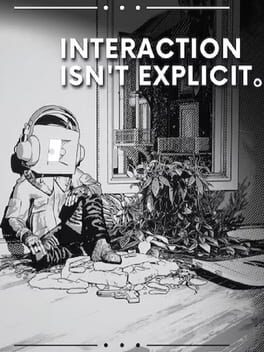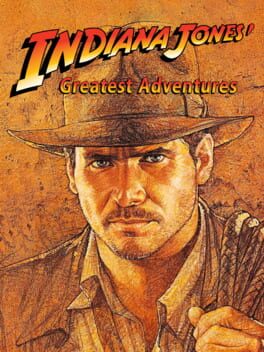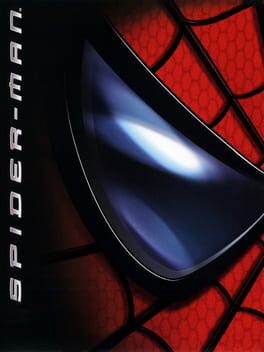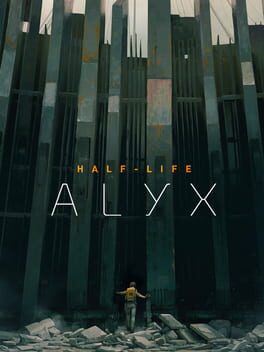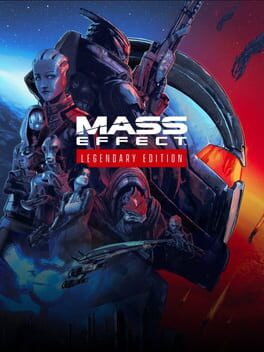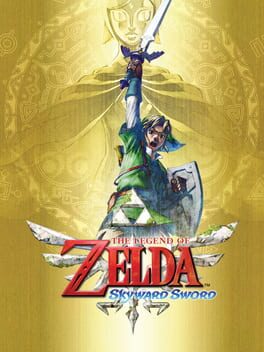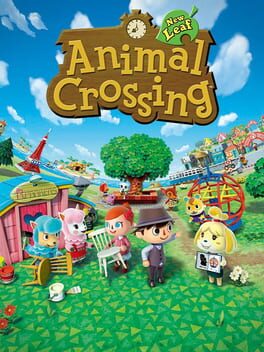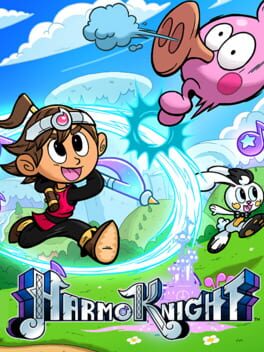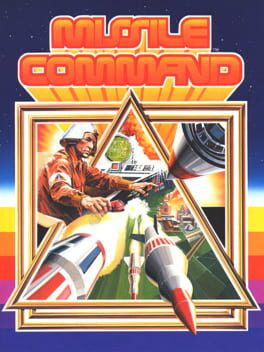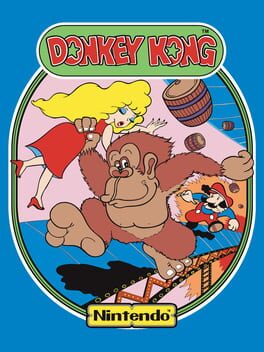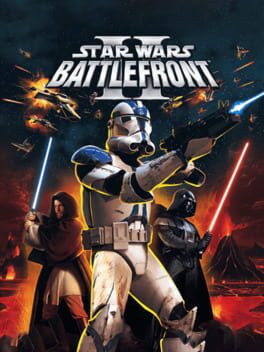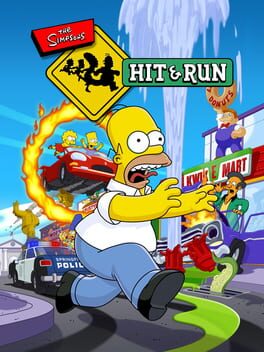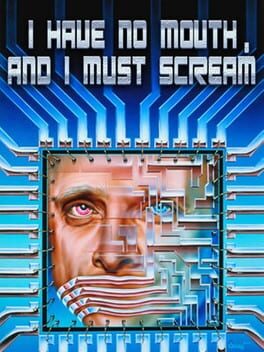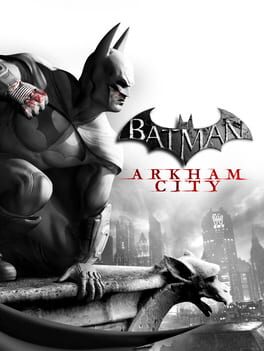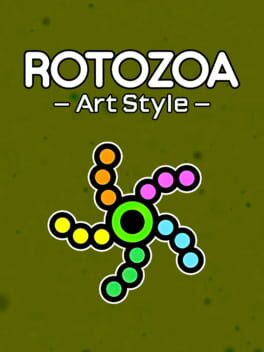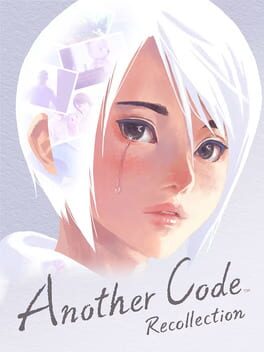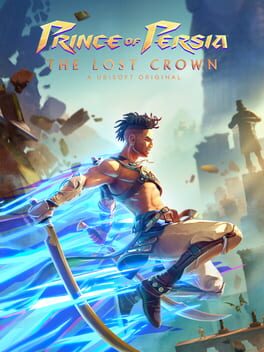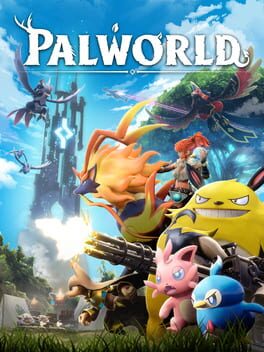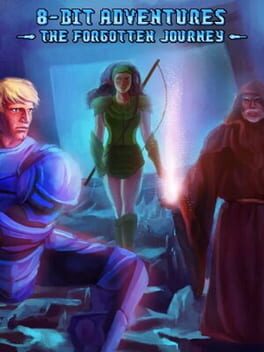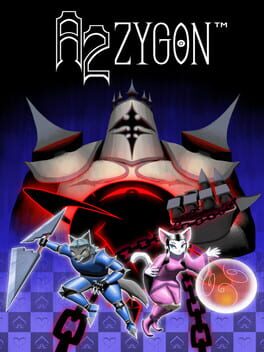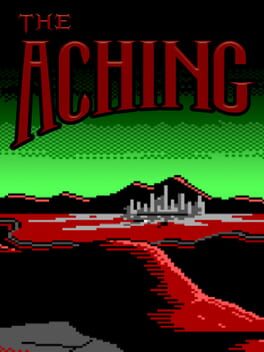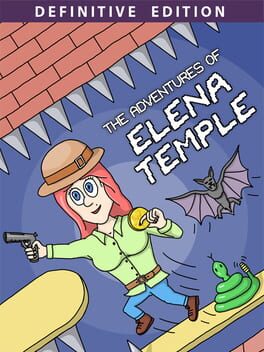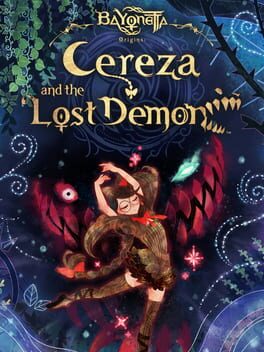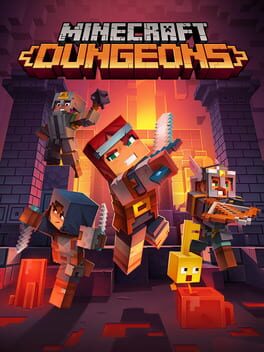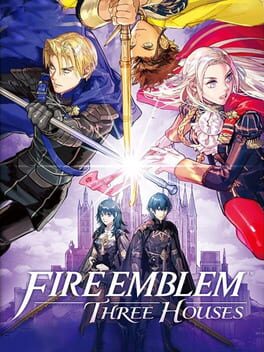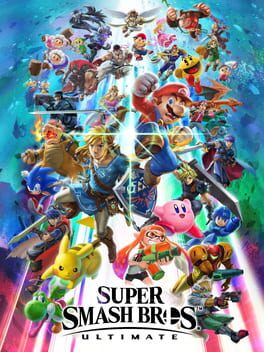Ratts
156 reviews liked by Ratts
I like this as a game design 101 and I like that Sony is somehow supporting small educational games like this, but I don't agree with the conclusions.
I don't think SotC is that good for the same reasons the narrator complains about explicit systems: there's only a single solution available to the player in order to progress. The final boss (and SotC) don't allow much player expression: the only way to win is to stand in a certain spot, shoot specific spots in a specific order, jump at a specific time, and use the grapple in a specific place. I don't really care whether I hit the jump button or interact button to climb when there's only a single spot where it will actually succeed.
I think Dishonored, Hitman, or any other immersive sim are better examples of fully interactive systems. Those games are all about giving you a sizeable toolkit and then the player discovering and exploiting the reactions caused by your actions on the game and allow a large degree of player freedom in how you progress through the game.
I don't think SotC is that good for the same reasons the narrator complains about explicit systems: there's only a single solution available to the player in order to progress. The final boss (and SotC) don't allow much player expression: the only way to win is to stand in a certain spot, shoot specific spots in a specific order, jump at a specific time, and use the grapple in a specific place. I don't really care whether I hit the jump button or interact button to climb when there's only a single spot where it will actually succeed.
I think Dishonored, Hitman, or any other immersive sim are better examples of fully interactive systems. Those games are all about giving you a sizeable toolkit and then the player discovering and exploiting the reactions caused by your actions on the game and allow a large degree of player freedom in how you progress through the game.
An interesting interactive essay that I think is a "genre" I'd love to see more works in due to the medium's conductiveness to delivering its point across, but that in this particular case feels somewhat basic and shallow.
The big point of contention lies, in my opinion, in how the developer defines explicit and implicit interaction systems in absolute terms rather than as levels of interaction that change from game to game and interact with the other elements of gaming. Let's take a look at two of the examples the developer presents: Persona 5 and The Last of Us (2, in the case of my review).
The dev argues that P5 is a game replete with explicit systems that all together work in perfect synergy with the other elements of the game to deliver a strong experience. I agree with the synergy part, but not so much with calling these systems inherently explicit; at what point does the pressing of a button go from implicit to explicit? If I, in combat, press a button that makes my character stab an enemy, is that implicit due to the directness of the action, or explicit due to the way my Joker moves towards the enemy and attacks on his own? Conversely, does my choosing of having Joker spend his time eating a burger implicit or explicit? I don't press anything to have him eat a burger, but I have total control on whether or not he does that. Let's add another layer, a narrative one: If I choose to play with Joker as a personal self-insert, do this actions lean more towards the implicit? On the other hand, if I choose to portray Joker in a purely role-playing sense, giving him a different name, do these actions lean more towards the explicit, since there is a higher level of disconnect between me and the player character? Discussion around game interactivity would benefit inmensely from a literary Barthesian optic, interrogating not only the game itself and the "intention" behind game mechanics but their case-by-case interaction with different kinds of players.
Now let's take a look at The Last of Us II, a game that features a bajillion implicit interactive moments developed with an equally high amount of labor law violations. I distinctly remember a moment in the game where I, as the player, can pick up a snow globe and shake it around, observing the beautiful realistically simulated digital moving snowflakes. This is a moment of extreme interactivity; the movement of the character towards the item, the picking up of it, and the movement of the snow globe are all performed by my own controls. But is it really implicit? This little pocket of interaction is completely divorced from any other game mechanic, existing in its own world of interactivity. Adding a narrative layer, the character I'm controlling is Elie, a fully realized individual in this game world with no room for role-playing. This leads to a new set of questions: Is this interactive possibility something Elie would do? Is my connection to the character severed if I do perform this interactive task, as opposed to if I don't? The developer mentions Red Dead Redemption 2 as a game where the game world allows for good inclusion of explicit systems, but fails to mention how the implicit interaction can sever the connection between player and character: Arthur is, by all means, a conflicted but kind man who, as a character, would never brutally mow down a town of civilians. But the implicit systems of the game allow ME, the player, to do it, at that instant shattering any connection between me and mister Morgan.
With all this in mind, can we truly declare immediate interaction as something inherently good? First, we would need to clearly define what truly is implicit interaction, and as we have already seen, this task is impossible due to the way different game systems and different players will interpret interaction differently. The developer ultimately concludes that Shadow of the Colossus is the apex of implicit interactive systems. But do SotC's systems truly allow the player a higher degree of interactivity with the game world, when the game is a hidden puzzle game? You can climb, but only the fluffy parts of the colossi. You can stab, but only the shining weak points of the colossi, any other action is moot. This is all perfectly fine in the context of the game, but it makes it a bad example of high interactivity. Better examples would be, for instance, Breath of the Wild/Tears of the Kingdom, or more sandbox oriented games like Minecraft. Still can we truly declare Minecraft inherently better than, say, a top-down strategy game for it's extremely high degree of implicit systems in comparison to the necessary explicitness of a strategy game?
Ultimately it's all a case by case basis, and we can't simply declare some systems as inherently better than others, when there are so many more factors that come into equation when it comes to games. Ours is a syncretic medium of extremely high audience-work connection, and as such it would be a disservice to it to talk about any of these factors in absolute terms.
Also the parody robo-Clive von FF16's dialogue tells me the dev completely misunderstood the character, which isn't a good look considering how on-the-face the game is about its themes.
The big point of contention lies, in my opinion, in how the developer defines explicit and implicit interaction systems in absolute terms rather than as levels of interaction that change from game to game and interact with the other elements of gaming. Let's take a look at two of the examples the developer presents: Persona 5 and The Last of Us (2, in the case of my review).
The dev argues that P5 is a game replete with explicit systems that all together work in perfect synergy with the other elements of the game to deliver a strong experience. I agree with the synergy part, but not so much with calling these systems inherently explicit; at what point does the pressing of a button go from implicit to explicit? If I, in combat, press a button that makes my character stab an enemy, is that implicit due to the directness of the action, or explicit due to the way my Joker moves towards the enemy and attacks on his own? Conversely, does my choosing of having Joker spend his time eating a burger implicit or explicit? I don't press anything to have him eat a burger, but I have total control on whether or not he does that. Let's add another layer, a narrative one: If I choose to play with Joker as a personal self-insert, do this actions lean more towards the implicit? On the other hand, if I choose to portray Joker in a purely role-playing sense, giving him a different name, do these actions lean more towards the explicit, since there is a higher level of disconnect between me and the player character? Discussion around game interactivity would benefit inmensely from a literary Barthesian optic, interrogating not only the game itself and the "intention" behind game mechanics but their case-by-case interaction with different kinds of players.
Now let's take a look at The Last of Us II, a game that features a bajillion implicit interactive moments developed with an equally high amount of labor law violations. I distinctly remember a moment in the game where I, as the player, can pick up a snow globe and shake it around, observing the beautiful realistically simulated digital moving snowflakes. This is a moment of extreme interactivity; the movement of the character towards the item, the picking up of it, and the movement of the snow globe are all performed by my own controls. But is it really implicit? This little pocket of interaction is completely divorced from any other game mechanic, existing in its own world of interactivity. Adding a narrative layer, the character I'm controlling is Elie, a fully realized individual in this game world with no room for role-playing. This leads to a new set of questions: Is this interactive possibility something Elie would do? Is my connection to the character severed if I do perform this interactive task, as opposed to if I don't? The developer mentions Red Dead Redemption 2 as a game where the game world allows for good inclusion of explicit systems, but fails to mention how the implicit interaction can sever the connection between player and character: Arthur is, by all means, a conflicted but kind man who, as a character, would never brutally mow down a town of civilians. But the implicit systems of the game allow ME, the player, to do it, at that instant shattering any connection between me and mister Morgan.
With all this in mind, can we truly declare immediate interaction as something inherently good? First, we would need to clearly define what truly is implicit interaction, and as we have already seen, this task is impossible due to the way different game systems and different players will interpret interaction differently. The developer ultimately concludes that Shadow of the Colossus is the apex of implicit interactive systems. But do SotC's systems truly allow the player a higher degree of interactivity with the game world, when the game is a hidden puzzle game? You can climb, but only the fluffy parts of the colossi. You can stab, but only the shining weak points of the colossi, any other action is moot. This is all perfectly fine in the context of the game, but it makes it a bad example of high interactivity. Better examples would be, for instance, Breath of the Wild/Tears of the Kingdom, or more sandbox oriented games like Minecraft. Still can we truly declare Minecraft inherently better than, say, a top-down strategy game for it's extremely high degree of implicit systems in comparison to the necessary explicitness of a strategy game?
Ultimately it's all a case by case basis, and we can't simply declare some systems as inherently better than others, when there are so many more factors that come into equation when it comes to games. Ours is a syncretic medium of extremely high audience-work connection, and as such it would be a disservice to it to talk about any of these factors in absolute terms.
Also the parody robo-Clive von FF16's dialogue tells me the dev completely misunderstood the character, which isn't a good look considering how on-the-face the game is about its themes.
On the boulder roll stage in the beginning, you have to be like at the ass end of the right side of the screen. Say what you will about the nineties lion king games but at least in their big chase levels they gave you ample notice when you’re about to trip over a big ass rock in the ground. I don’t think kid me would have even made it past this level.
Also as a Last Crusade supremacist it is vfunny to me that the very final boss of the whole game is Walter Donovan immediately post-wrong-Grail-drink as a walking skeleton, with the goofy crusader standing in the sidelines.
Also as a Last Crusade supremacist it is vfunny to me that the very final boss of the whole game is Walter Donovan immediately post-wrong-Grail-drink as a walking skeleton, with the goofy crusader standing in the sidelines.
Infinite Craft
2024
Balatro
2024
https://i.ibb.co/6vLDK1S/Screenshot-2024-02-26-at-12-44-02.png
not morally egregious per se but rather a depressing culmination of two centuries worth of design trickery and (d)evolving cultural/social tastes and otherwise exists as insipid casinocore autoplaying bullshit that leaves you feeling the same way as you did moments after blasting rope to that fucked up mmm ice cream so tasty thing you found in the middle of a reddit doomscroll. this game should come with a contractual agreement binding its devotees to never speak prejudicially about mobile games or musou or vampire survivors or people whose lives have been ruined by industrialised gambling practices. you seen that casinos have RFID wristbands now that let you re-ante by just waving your hand across the slots? goes great with the simulated day/night lighting and complementary alcoholic energy drinks. endless hours of fun! fuck the review man let's talk the end of the world in the comments below
not morally egregious per se but rather a depressing culmination of two centuries worth of design trickery and (d)evolving cultural/social tastes and otherwise exists as insipid casinocore autoplaying bullshit that leaves you feeling the same way as you did moments after blasting rope to that fucked up mmm ice cream so tasty thing you found in the middle of a reddit doomscroll. this game should come with a contractual agreement binding its devotees to never speak prejudicially about mobile games or musou or vampire survivors or people whose lives have been ruined by industrialised gambling practices. you seen that casinos have RFID wristbands now that let you re-ante by just waving your hand across the slots? goes great with the simulated day/night lighting and complementary alcoholic energy drinks. endless hours of fun! fuck the review man let's talk the end of the world in the comments below
Balatro
2024
Balatro
2024
This game has a screen where you can enter cheats but as far as I can tell, no one has ever documented them online
Edit: I ended up going into the game files myself and finding the cheats. I added them all here https://tcrf.net/Disney_Channel_All_Star_Party
Edit: I ended up going into the game files myself and finding the cheats. I added them all here https://tcrf.net/Disney_Channel_All_Star_Party
Spider-Man
2002
Occupies a weird middle ground between the PS1 Spidey games and the million open-world titles that would follow. (This one's still level-based - yeah, hard to even imagine, I know.) If you can wrestle the controls and the camera into submission there is some fun to be had, with lots of moves and fairly good traversal. Dafoe's delicious V/O is almost worth it by itself, but Tobey's sleepy delivery is amusing too, for a very different reason lol. Also in one of the cooler unlockables of the era, you get the option to play the entire game as the Green Goblin, with totally different controls and dialogue in the levels. You're actually playing as Harry Osborn after the events of the movie/game, using his dad's tech to try to figure out what happened to him! The integration is bit half-assed at times, but it's kinda neat, nonetheless.
It could have been worse. Not exactly high praise, but eh.
It could have been worse. Not exactly high praise, but eh.
67 lists liked by Ratts
by The_Gaming_Dog12 |
45 Games
by Clearin |
10 Games
by BeeKirby |
37 Games
by MendelPalace |
231 Games
by Fingerschmaus |
62 Games
by Marid |
1001 Games
